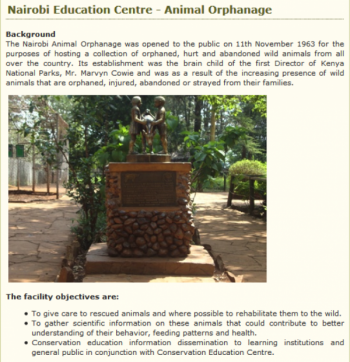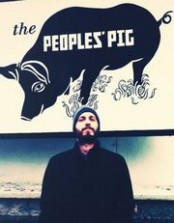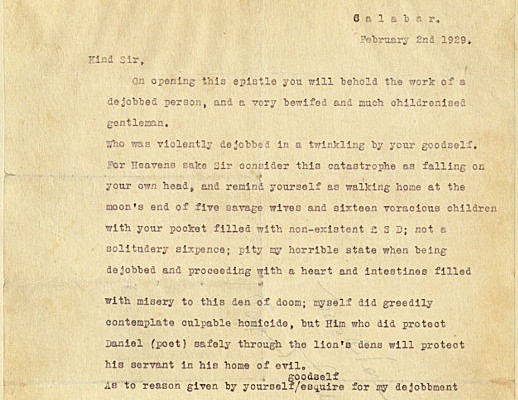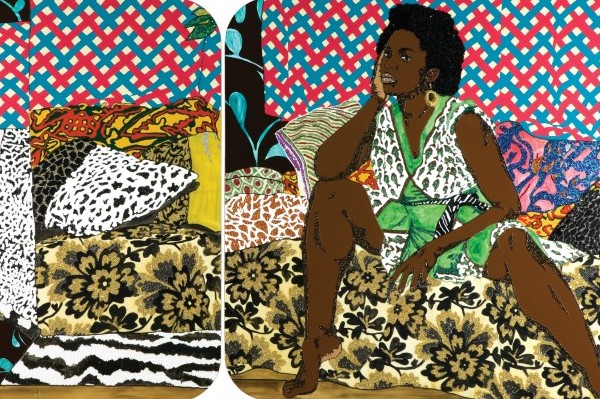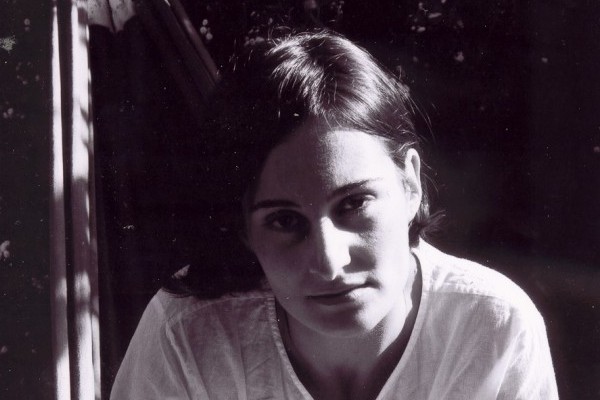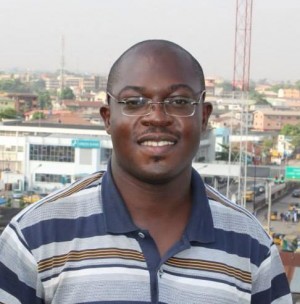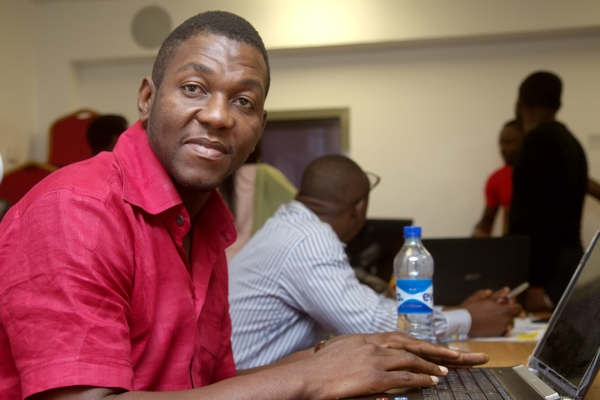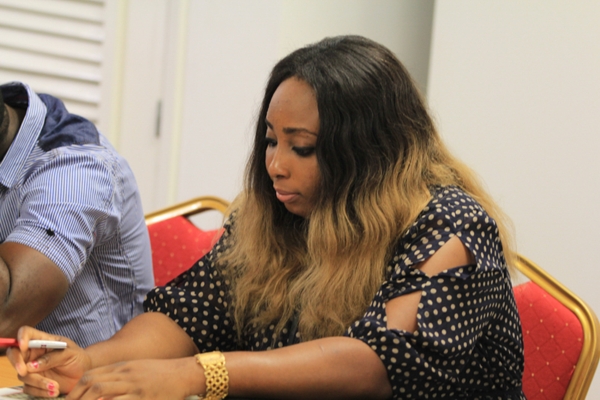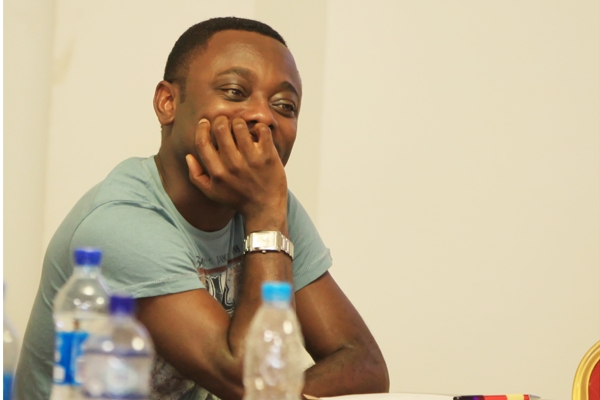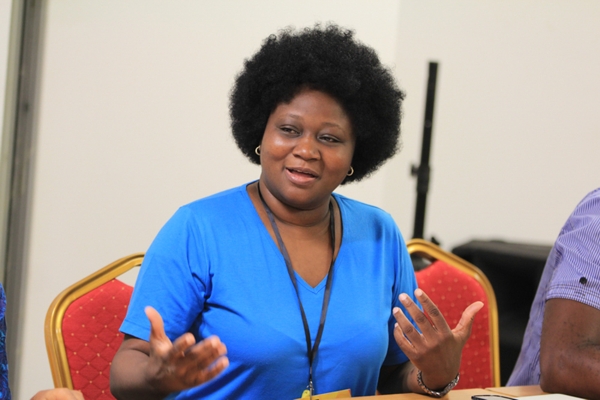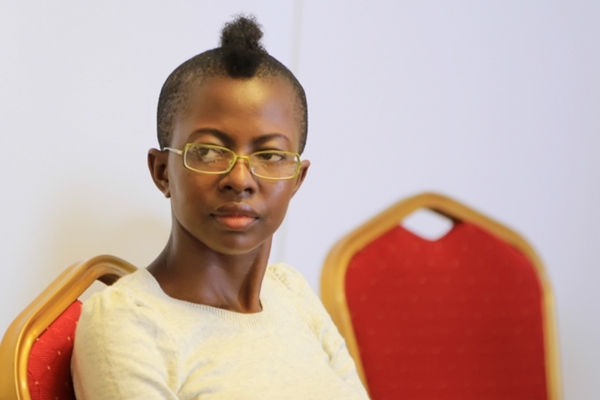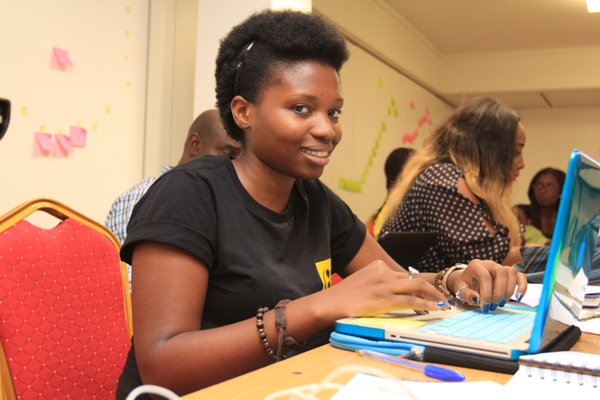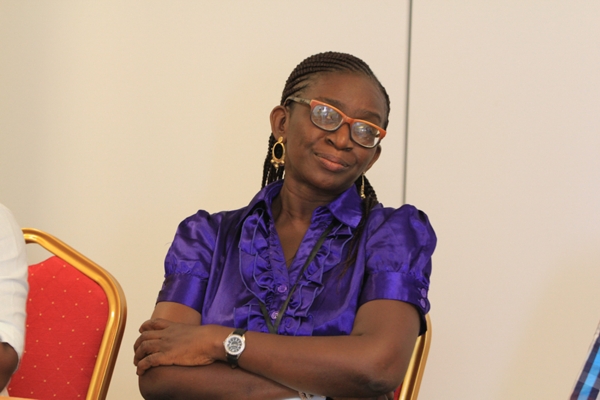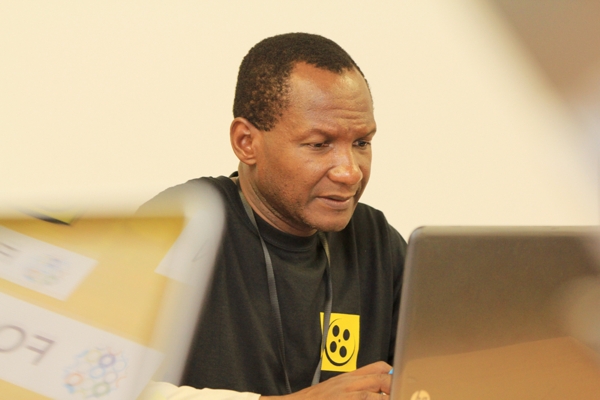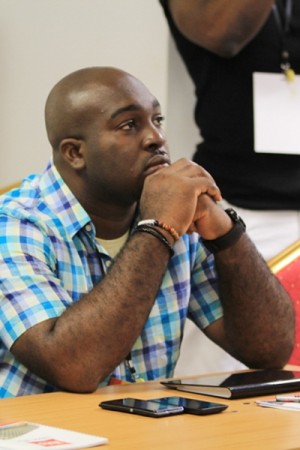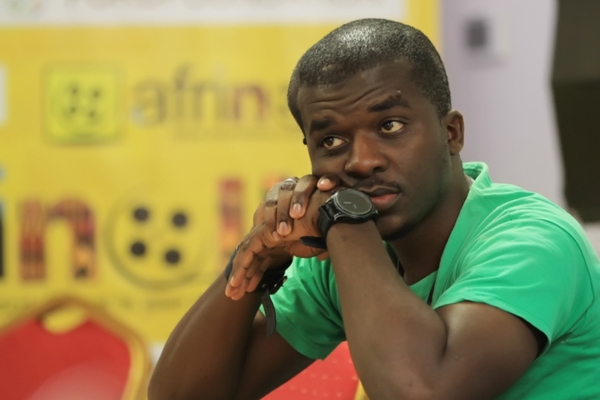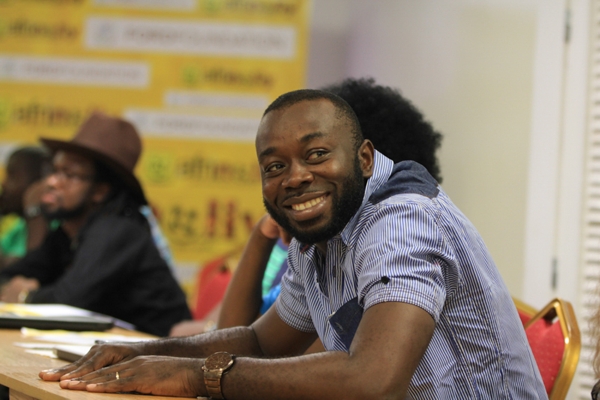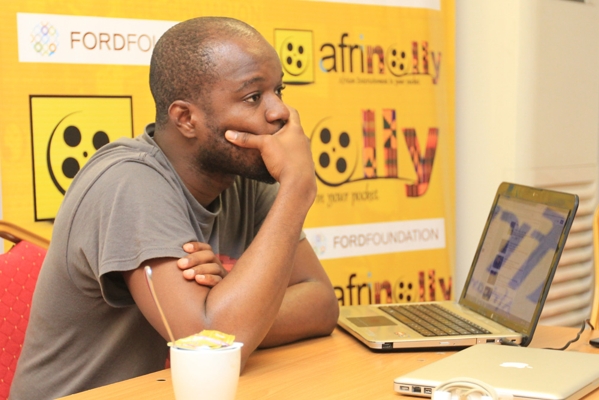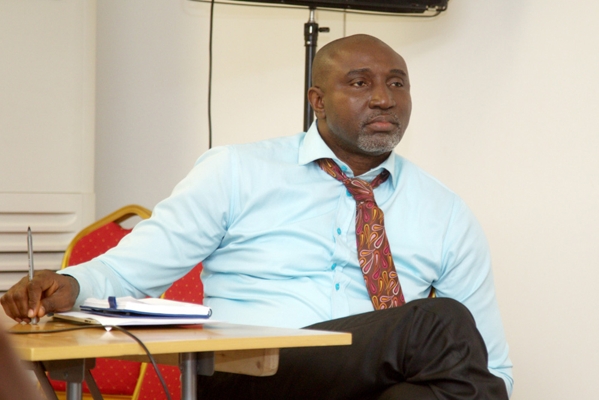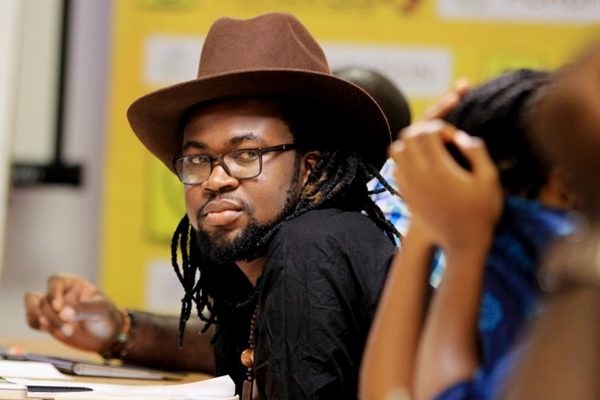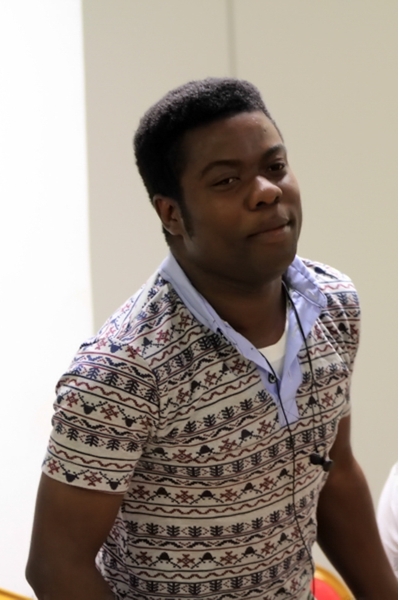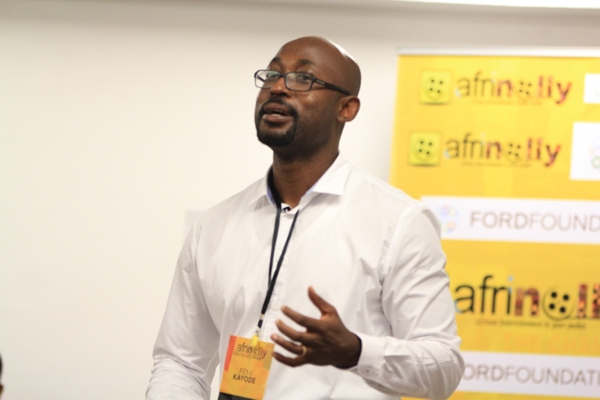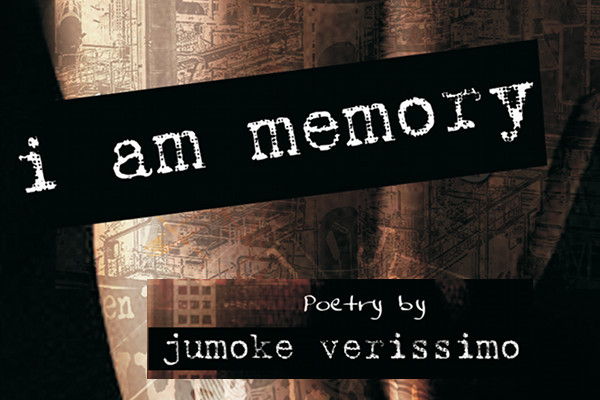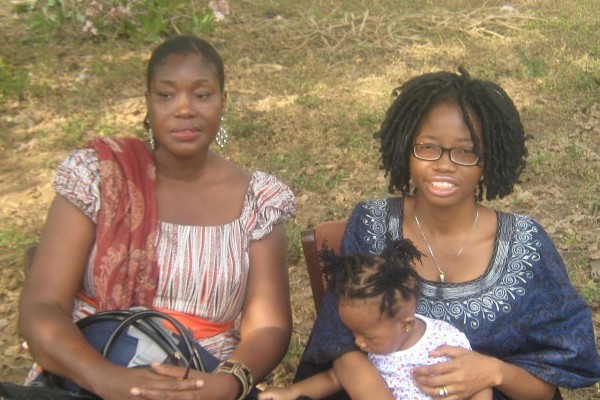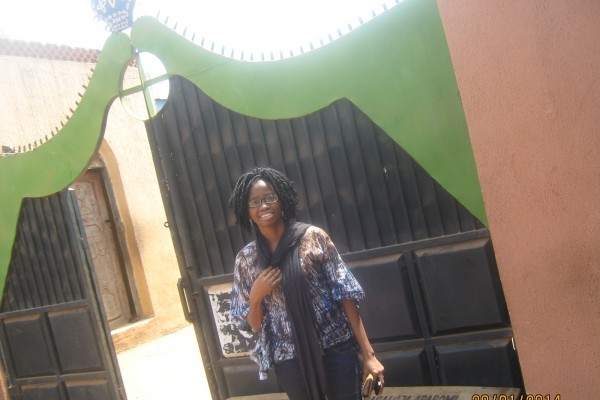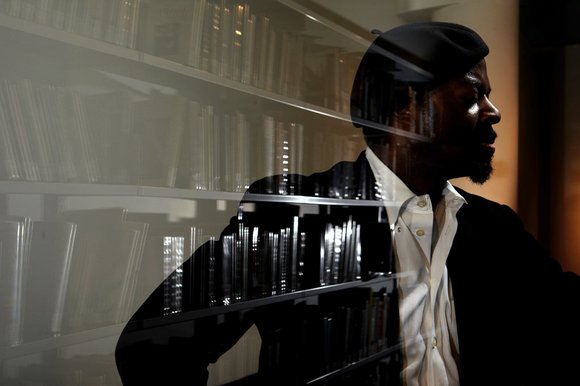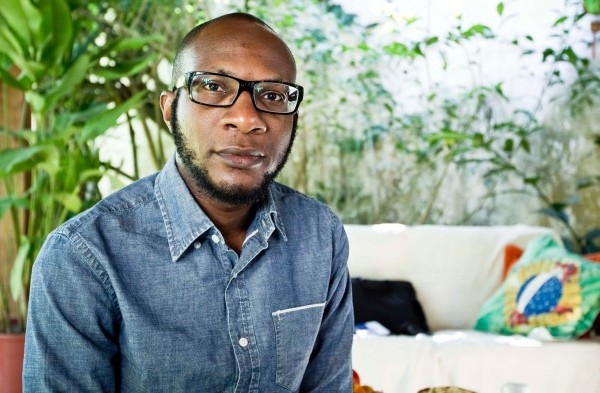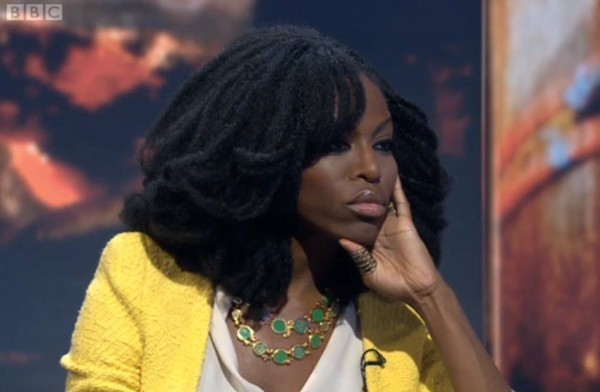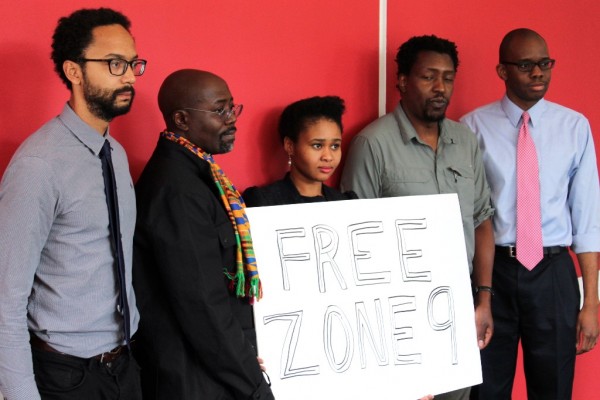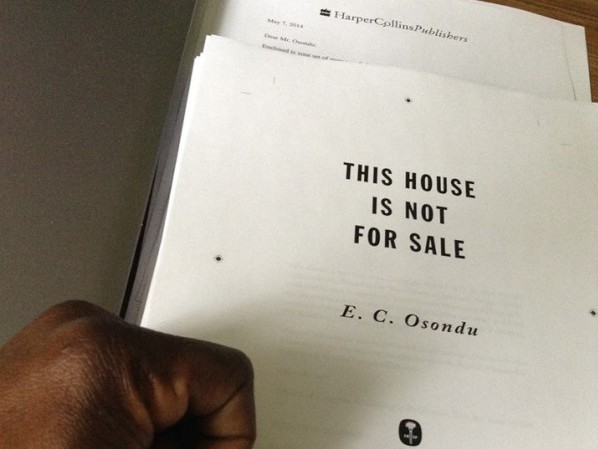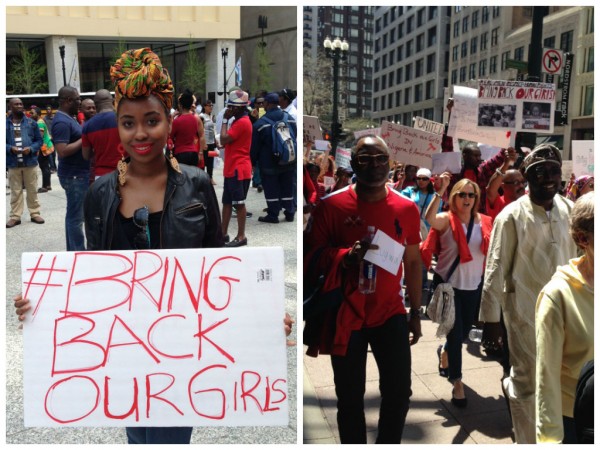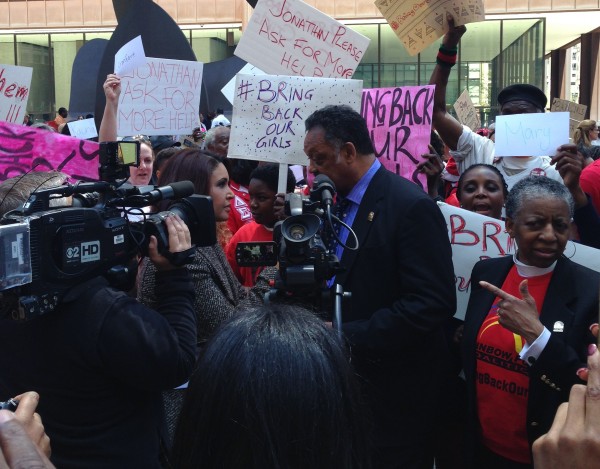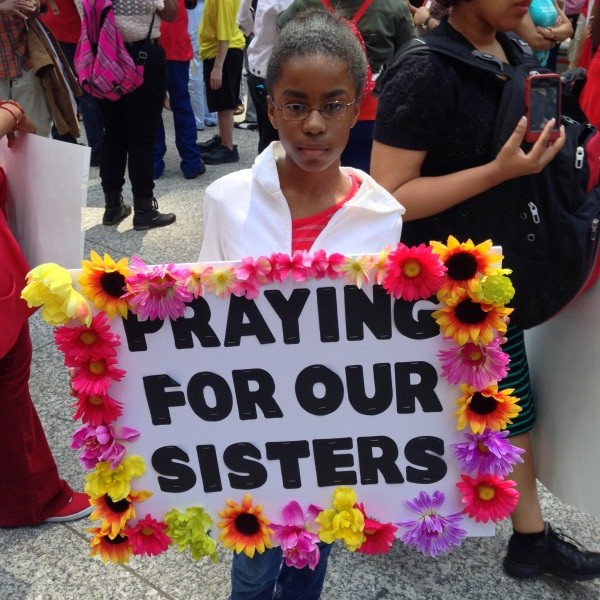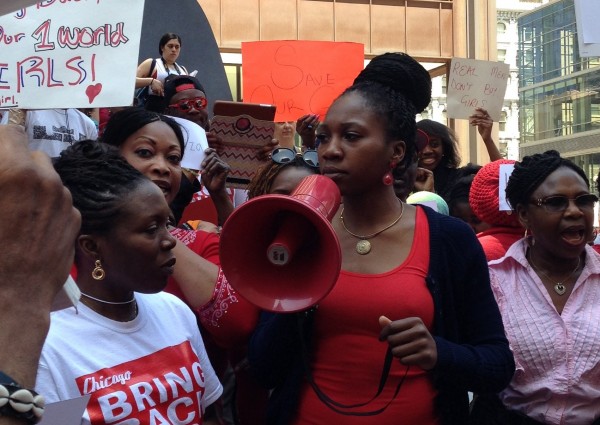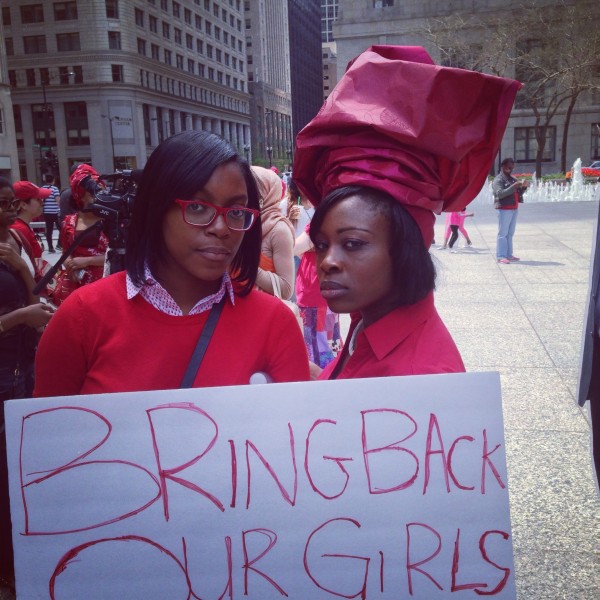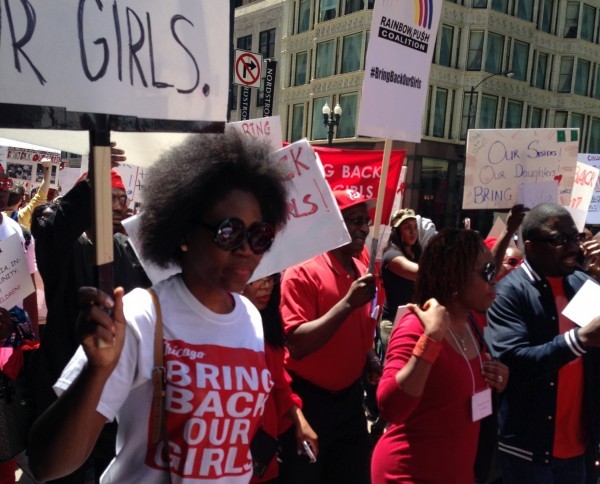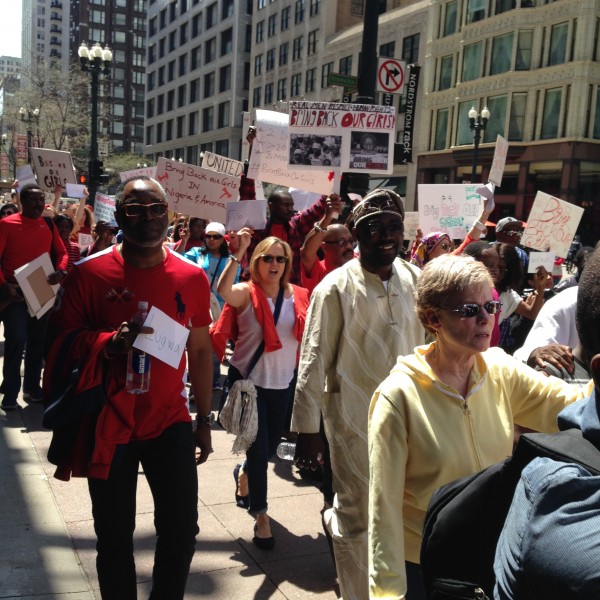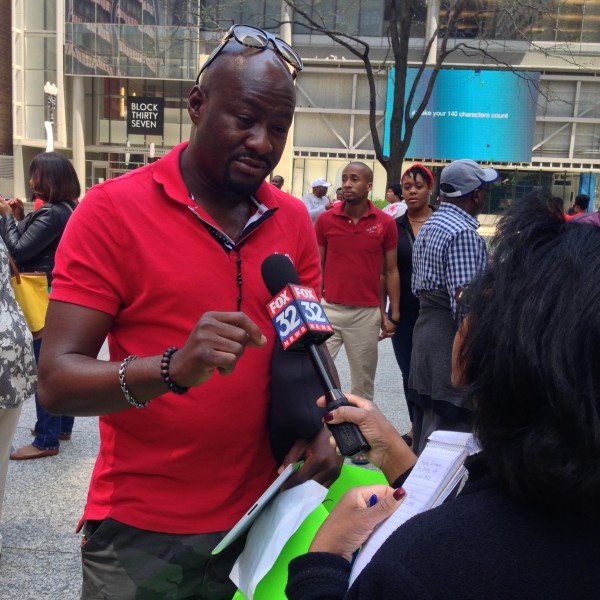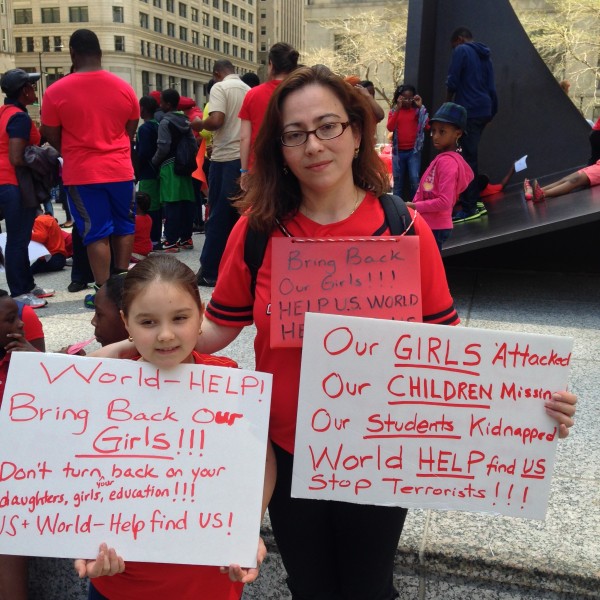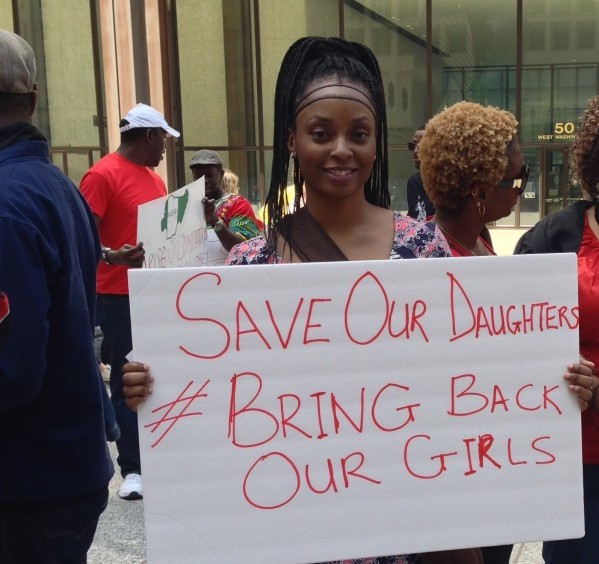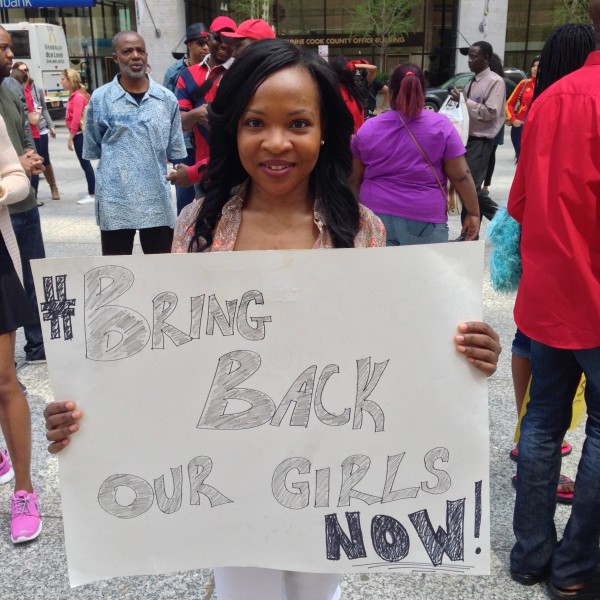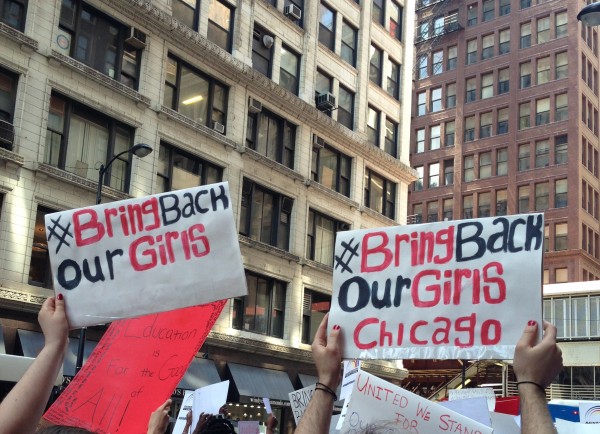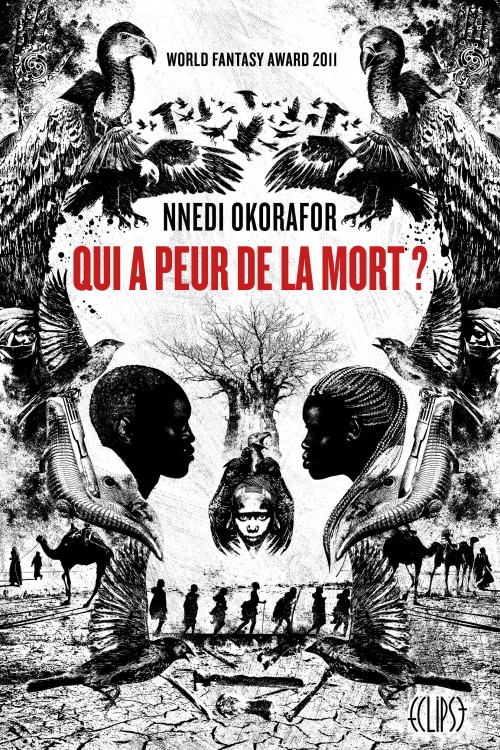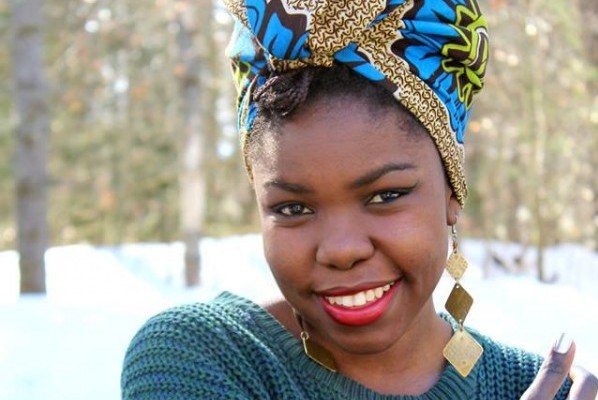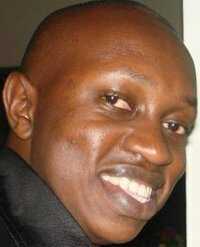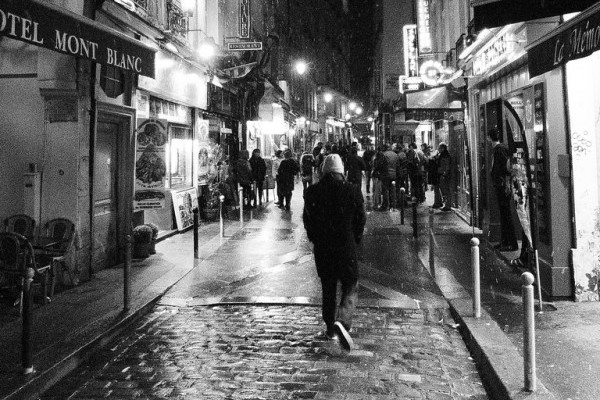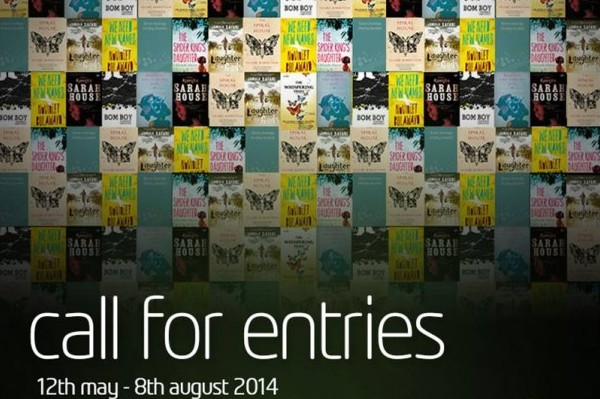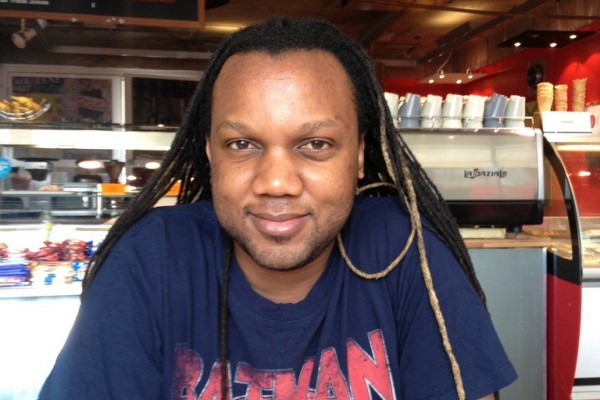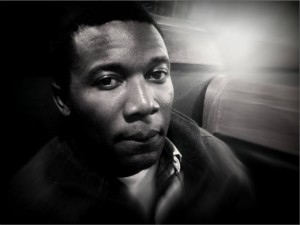![]()
![Afrinolly-19-Pearl-Osibu1]()
Pearl Osibu
By Pearl Osibu
I’m Pearl Osibu — Literary writer, blogger, fashion designer. Notice, not a screenwriter. Or shall we say I wasn’t a screenwriter? I, now most definitely, am, and that’s the tale. The rest is detail.
Afrinolly partnered with Ford foundation and gathered together a potpourri of writers of different genres— the screenwriters, the novelists, the bloggers, the poets and well . . . the screenwriters *giggles*.
Anyway, we have a mandate. Write us a script, each and every one of you. Entertain us, educate us, and for christsakes, don’t bore us; and if you don’t know how, here’s Femi Kayode, he’s gonna teach you and you’d better learn fast. And by god, we did, did we ever.
And just so we knew they weren’t playing, we had the best people, experts in their fields all, come speak to us. Among them Femi Odugbemi; CEO, DVworx, Professor Bolaji Owasanoye on governance and Conflict, Dr. Godwin Ojo on Environment and Conservation, and Ms. Bolaji Fati and Sir Chris Akwarandu on Reproductive Health and Rights. We did have social issues to tackle after all.
So they keep us in this really nice hotel, feed us three times a day (our waistlines are still in recovery), show us the gym and pool. And then proceed to ensure that we have time for nothing except work. Which I think is the whole point of workshops.
Meet the participants.
![Afrinolly-11-Jude-Idada]()
Jude Idada
Jude Idada – AMAA Award-winning director, producer, writer of prose, drama and the most beautiful poetry ever (I started reading his collection Exotica Celestica—which I insist on calling Erotica Ecclestica—and nearly didn’t turn my script in as a result). He’s also got to his credit a collection of short stories “A box of Chocolates,” along with a play and a novel. All this you can find online. What they cannot tell you, though, is that he is very articulate and serious one moment, and then spoils it by coming to class wearing lipstick. And that is all you need to know. Next.
![Afrinolly-8-Jenim-Dibie]()
Jenim Dibie
Jenim Dibie – Poet turn pharmacist turn cosmetologist turn poet turn prose writer. Jenim. Her poetry collection “SCARCAST” was published last month and they are beautiful poems. She gave us each a free copy on the very first day. She is so shy. It is the first thing you notice, right after her flawless makeup. So quiet too, she chooses to speak to us through her work, and we respect, accept and endorse.
![Afrinolly-10-Jude-Dibia]()
Jude Dibia
Jude Dibia – Jude. Author of three novels – Unbridled, Walking with Shadows and more recently, Blackbird. I cannot get enough of Jude’s books and you would think that’s all I couldn’t get enough of. Then I encounter his eyes. Swoon-making, hazel eyes. Jude is so mild. He tempers my exuberance whenever he’s around. I just get mellow. And you will never find a more courteous and proper gentleman. He had us reeling with laughter time and again. Then he spoils it by eating the most incredible amounts of food you never saw a slim person eat. And you wonder how he does it.
![Afrinolly-13-Kemi-Adesoye]()
Kemi Adesoye
Kemi Adesoye – She wrote the screenplays for Figurine and Phone Swap. Like wow. But you know what somebody said at the Workshop? “Kemi does not know she wrote Figurine and Phone swap. She cannot know.” And that tells you all you need to know. When you meet her, you will find a soft-spoken lady, wearing a kind smile, feet curled under her like a Buddha.
![Tunde Aladese]()
Tunde Aladese
Tunde Aladese – I’ve got a crush on her. No no, not the way you are thinking. This is all purity. Tunde is most well known for being head writer of Tinsel since 2010. But she’s worked on several other projects including Story story, Edge of Paradise, and the film, The Child. She has also written for True Love Magazine and worked as an associate producer on the talk show Moments with Mo. However, going by the reactions I got to pictures on social media, I would say the audience is most interested in her hair. Or the lack of it. She’s got this amazing Mohawk that makes me want to scrape off my dreads. Her sense of style was described at the workshop as “individualistic”. We agree. What with the little little dresses that show off her svelte, fashionably thin body that ties my stomach in knots of envy.
![Haye Okoh]()
Haye Okoh
Haye Okoh – This beautiful, beautiful girl, mild mannered, sweet and self-effacing, unassuming. Don’t be fooled. Behind this facade hides a formidable strength of character and passion that is revealed in her work—photography. She runs a blog where you can get acquainted with her work, and in her words, “My photography tries to portray how I see my subjects and not necessarily what they are. I take pictures of any and everything. From people to windows to clouds; the model’s pose, the banker’s walk, the chef’s stir…anything I feel shouldn’t be forgotten. ” She is simply unforgettable. Oh she’s a fitness freak too.
![Adeola Ike]()
Adeola Ike
Adeola Ike – My adopted mother at the workshop. Nope, she’s not old. She’s just so . . . like a mother. So gentle and always saying the kindest things to, and about everyone. When I saw her profile before the workshop (*whispers* Pastor’s wife, writer of ‘Christian’ novels), I was worried. And then on the very second morning, she pulls me aside and says the kindest words anyone has said to me in a while, (I won’t tell). Then I knew we would be fine. She’s written many soap opera scripts like Rough Edges, and Cyberia, and some episodes of the drama series Living in Lagos.
![Afrinolly-22-Yakubu-Lamai]()
Yakubu Lamai
Yakubu Lamai – A cultured gentleman through and through, Yakubu speaks like a prince, a true wordsmith. No wonder his was the first voice on Cool FM Lagos, when in October 1998, they opened with his ‘Hello, welcome to Cool FM in Lagos.’ Don’t be fooled, this man is a fighter. Using documentaries, his real forte as a tool, this Film alumnus of Ohio University has engaged in all kinds of activism including civil rights, gender equality and a host of social concerns.
![Michael Osuji]()
Michael Osuji
Michael Osuji – This screenwriter is the CEO at Konnekt Media group. And I don’t know much more about Micheal, even if he also supplied me with enough films to last me a few months. Here is who I, and most of us at the workshop do know all about *drum roll* His wife. Like wow, I have never heard a man talk about his wife so much. In fact, when we thought we might go for Karaoke, we banned him from bringing his wife since he had told us all about her singing prowess. This is a bad boy turn good and we love it.
![Afrinolly-23-Yomi-Ososanya]()
Yomi Ososanya
Yomi Ososanya – A man of few words, Yomi is beyond enigmatic. Then I watch his short film, BLISS and I understand. I understand how he communicates with his silence. How in six and half minutes he can tell a story so profound and suspenseful I gasped several times. Watch him o. (And he’s got this voice that rumbles . . .)
![Ejiro Onobrakpor]()
Ejiro Onobrakpor
Ejiro Onobrakpor – hehehe…first I thought Ejiro was a girl because of his name. It took me all of the workshop period to get over my disappointment. But it was made easier by the presence of . . . never mind. He is definitely not a girl. Google can tell you he is a Director of production/film/screen writer/documentary film maker/event videography/—and he makes the most amazing wedding videos. If he didn’t do yours, you aren’t married (oops)—but what they won’t tell you is what a romantic he is. During the workshop, if there was love in a story, we all looked to Ejiro to find it.
![Afrinolly-15-Obi-Okoroafor1]()
Obi Okoroafor
Obi Okoroafor – Obi, sometimes Gerald (which caused some confusion) and sometimes Nwaswagger (which caused much eye-rolling) is an amazing screen/comic story writer, and excels at panelling. His catchphrase, “is it because I’m black?” which sends everybody rolling. But if you want all the movies you have ever been looking for, and those you never heard about, he is the go-to guy. There was a literal, actual honest-to-goodness queue for his hard drive. And oh, he looks exactly like Ojukwu, it’s uncanny.
![Afrinolly-17-Omotayo-Abereoje]()
Tayo Abereoje
Tayo Abereoje – is a screenwriter, actor and producer, living in Ghana. One word. Mischief. The things that come out of her mouth are completely at odds with her innocent expression. After a while, I stopped being shocked. I could never get enough of hearing her speak. When she spoke, the place when quiet, her voice rang so . . . American. LOL. True. She looks nothing like how she sounds. And her views were always, uhm . . . different. She will kill me for this.
![Afrinolly-4-Ben-Chiadika1]()
Ben Chiadika
Ben Chiadika – I saw this somewhere, “with a bible in one hand and a script in the other . . .” and I thought that’s about right. This, possibly, six and half footer towered above the whole class. But when you look up, you see the gentlest face, pair of eyes and smile ever. That’s Ben. Then I find out he is a Pastor, and I can just totally see it. He’s been writing scripts since the 80s, a few of which are Drop of oil, Moving Fingers and Back from Hell. He is also an award-winning director. He has directed projects like Soul Sistas, Rough Edges, Cyberia etc. Talk of successfully straddling two worlds.
![Onyeka Nwelue]()
Onyeka Nwelue
Onyeka Nwelue – He should be most famous for his literary works, Burnt and The Abysinnian Boy or for his music label which has Onyeka Onwenu signed on, or even for his work as a filmmaker. I really wish I could say that those were his claim to fame. But no, this enfant terrible of the workshop, who prefers to be introduced as “The Black Baron of Paris, His Royal Awesomeness, the dreadlocked African warrior prince” *sic* is a young, talented troublemaker. He is also known for his incendiary facebook updates and open letters to such political or celebrity figures as Tonto Dikeh and Atiku Abubakar. But the workshop agreed it was all a facade and Onyeka is a softie hahaha.
![John Tukura]()
John Tukura
John Tukura – or Tee jay Dan as he is most popularly known is a writer and filmmaker – studied at the New York film Academy and has written a number of opinion articles about Nollywood. He is also very vocal on social media on a number of issues. The one he is most passionate about being anything that concerns his native Gbagyi, an Ethnic group in Niger state. It is what we will most remember about him (I think), how he plans to use his voice and work to campaign for social justice for his people.
![Kayode Faniyi]()
Kayode Faniyi
Kayode Faniyi – Short story writer, blogger, and now screenwriter, this quiet, seemingly gentle dude hides behind that personae, and if I didn’t tell you, you wouldn’t know to prepare for the sheer brilliance and cogency of his mind (and the ever-lurking cynicism of course), unless you are an ardent reader of his blog, as I am. Oh and his mind is super-quirky. I never see his posts coming.
![Afrinolly-16-Olubunmi-Familoni]()
Olubunmi Familoni
Olubunmi Familoni – when this one opens his mouth, all our mouths fall closed. His deep baritone has nothing to do with the lanky frame it emerges from. But beyond that, this is a guy who knows his literature. And he writes it in such a visually descriptive way that the facilitator at the workshop could not help going back to his work over and over again as reference. But all this is when Bunmi is not arguing and dismissing people’s arguments, or being terribly brilliant on twitter. He blogs too.
![Alexandra Hul]()
Alexandra Hul
Alexandra Hul – Oh my! Tomboy of the workshop. She received a standing ovation when she wore a pretty formal dress on Easter Sunday. Dancer, screenwriter, director/producer (in training), she wrote the brilliant short film, “To Serve With All Our Strength.” Alex hides painful shyness behind great boldness that you have to admire. Then she loses it all when she begins to break-dance with the best of them.
![Udoka Oyeka]()
Udoka Oyeka
Udoka Oyeka – Lady Killer. I should just leave google to say the rest. But no, this kickass brawny screenwriter, actor and filmmaker is equally plenty brains. Maker of the short film, Down and Out and another short, Living Funeral (8 nominations in AMVCA 2014, an AMAA nomination and has been selected for the Cannes Film festival!), he is also one of the two people behind the much-talked about The Red House Seven. I very near swooned when I met him, even if I have not seen the movie. You know when everybody is talking about something/one. But he is oh-so-sweet with it. And ready to pitch in when and where help is needed
![Femi Kayode]()
Femi Kayode
Femi Kayode: Facilitator extraordinaire, he has forever changed the face of workshops for me. When a man can take twenty or so people, many of whom have never met before, treat them like princes and princesses, turn complete novices to promising screenwriters at the very least, and get the experts to slow down; when a man is able to create an environment so relaxed and convivial (sometimes he’s facilitating from where he’s lying on the rug in the centre of the room), and is yet able to achieve his objectives, he has commanded, and will keep my respect.
And so ladies and gentlemen, I give you the new faces of movie making in Nigeria.
***
![photo-pearl-osibu]() Pearl Osibu is a Fashion Designer/Stylist, Nigerian writer and blogger. She writes a blog titled Fifty Shades of Me where she publishes her short stories and keeps up a commentary on topical, social issues.
Pearl Osibu is a Fashion Designer/Stylist, Nigerian writer and blogger. She writes a blog titled Fifty Shades of Me where she publishes her short stories and keeps up a commentary on topical, social issues.
Her works have been published in Sentinel Nigeria eZine, Jetlife Magazine, Metropole, NigeriansTalk, etc.
She lives in Lagos, Nigeria.
Follow her on Twitter: @pearlosibu

 Akwaeke Emezi is an Igbo and Tamil writer born in Umuahia and raised in Aba, Nigeria. She currently lives in Brooklyn and has been writing since she could write. Check out her story on Brittle Paper HERE. See more of her short videos HERE. And follow her on twitter @azemezi
Akwaeke Emezi is an Igbo and Tamil writer born in Umuahia and raised in Aba, Nigeria. She currently lives in Brooklyn and has been writing since she could write. Check out her story on Brittle Paper HERE. See more of her short videos HERE. And follow her on twitter @azemezi



